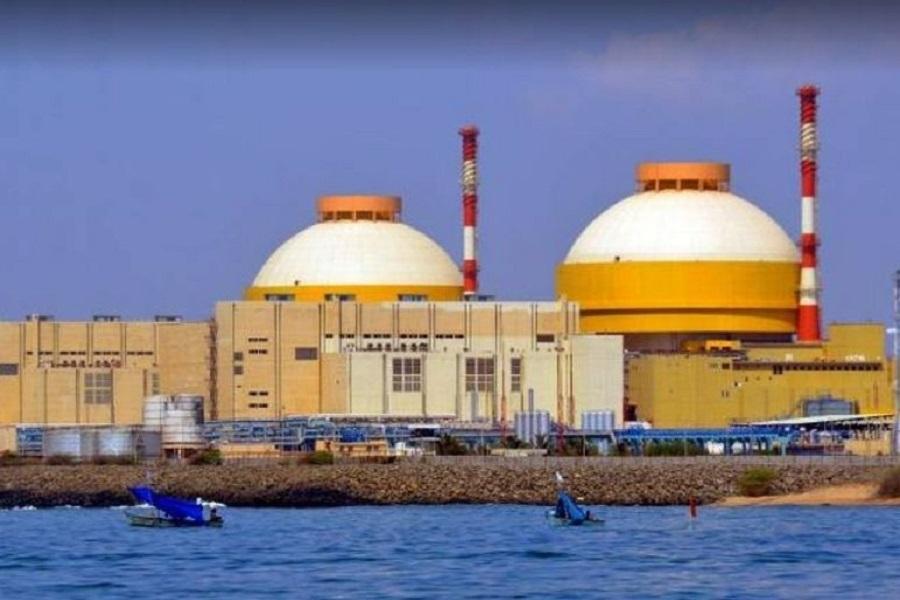
Centre Reviews 100 GW Nuclear Mission to Boost Clean Energy Goals
In a significant move to promote clean energy and reduce carbon footprint, the Indian government has convened a high-level meeting to review the 100 GW Nuclear Energy Mission. The meeting, jointly chaired by Union Power Minister Manohar Lal Khattar and Minister of State for Atomic Energy, Dr Jitendra Singh, aimed to discuss the progress made so far and chart a course forward to achieve the ambitious target.
The 100 GW Nuclear Energy Mission is part of the country’s larger endeavour to reduce its reliance on fossil fuels and transition to cleaner sources of energy. As part of this effort, Prime Minister Narendra Modi has set a target of expanding India’s clean energy basket, which includes solar, wind, and nuclear energy. The goal is to achieve Net Zero emissions and reduce the country’s carbon footprint.
The meeting, which took place on Friday, follows up on the Prime Minister’s vision to make India a global leader in clean energy. The government has been working towards achieving this goal by promoting the use of renewable energy sources, improving energy efficiency, and increasing the share of nuclear energy in the country’s energy mix.
Key Directives Issued to Achieve 100 GW Nuclear Energy Mission
During the meeting, the government issued key directives to achieve the 100 GW Nuclear Energy Mission. The directives include:
- Enhanced Nuclear Power Generation: The government has set a target of increasing nuclear power generation by 20% in the next five years. This will require a significant increase in the production capacity of nuclear power plants across the country.
- Upgrading Existing Facilities: The government has instructed nuclear power plant operators to upgrade their facilities to enhance efficiency and reduce emissions. This includes the installation of new reactors, upgrading existing infrastructure, and improving maintenance practices.
- New Reactor Projects: The government has given the green light to new reactor projects, which will help increase nuclear power generation capacity in the country. The projects include the construction of new nuclear power plants, the establishment of new nuclear reactors, and the development of new nuclear fuel cycles.
- Research and Development: The government has emphasized the importance of research and development in the nuclear sector. This includes the development of new technologies, the improvement of existing technologies, and the training of nuclear professionals.
- Collaboration with International Partners: The government has acknowledged the importance of international cooperation in achieving the 100 GW Nuclear Energy Mission. This includes collaboration with other countries, international organizations, and private sector partners to share knowledge, expertise, and best practices.
Benefits of Achieving 100 GW Nuclear Energy Mission
Achieving the 100 GW Nuclear Energy Mission will have several benefits for the country. Some of the key benefits include:
- Reduced Greenhouse Gas Emissions: Nuclear energy is a zero-carbon source of energy, which means that it does not emit greenhouse gases or contribute to climate change.
- Improved Energy Security: Nuclear energy can help improve energy security by reducing dependence on imported fossil fuels and enhancing energy self-reliance.
- Job Creation: The nuclear sector has the potential to create thousands of jobs, both directly and indirectly, in various fields such as construction, maintenance, and manufacturing.
- Economic Growth: The nuclear sector can contribute to economic growth by providing a new source of revenue and stimulating economic activity in various sectors.
- Improved Healthcare: Nuclear energy can help improve healthcare by providing a reliable source of electricity for hospitals and other healthcare facilities.
Conclusion
The government’s decision to review the 100 GW Nuclear Energy Mission is a significant step towards achieving the country’s clean energy goals. The mission is critical to reducing India’s carbon footprint and achieving Net Zero emissions. The government’s directives to enhance nuclear power generation, upgrade existing facilities, and develop new reactor projects will help achieve the mission’s objectives. The benefits of achieving the 100 GW Nuclear Energy Mission are numerous, including reduced greenhouse gas emissions, improved energy security, job creation, economic growth, and improved healthcare.
Source:






